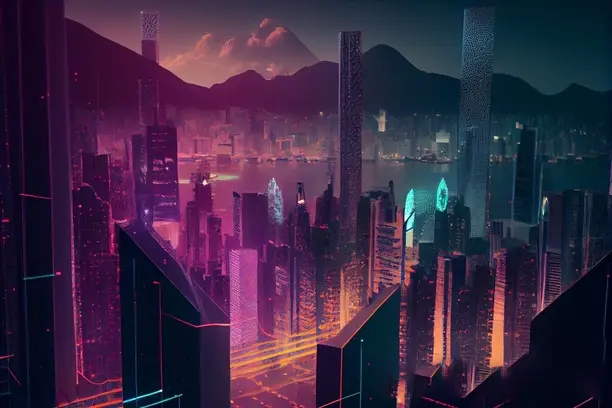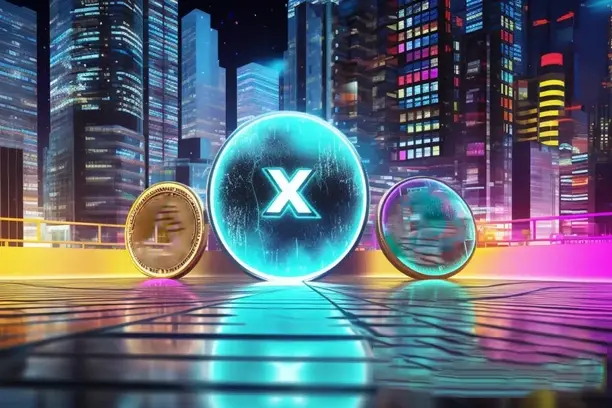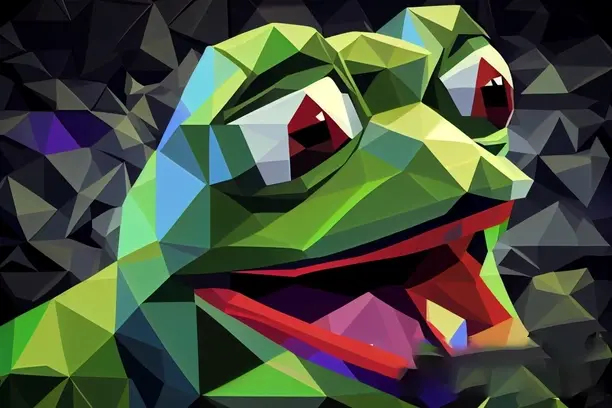Blockchain DAO (Decentralized Autonomous Organization), as a brand new organizational form, is showing its unique application value in various fields. Through a decentralized governance structure, DAOs are able to achieve democratic decision-making, financial transparency and decentralization of members, bringing more innovation and possibilities. In this paper, we will explore the main application areas of DAO, from the management of cryptocurrency to decentralized finance and NFT projects, to community governance and supply chain management, and comprehensively analyze how DAO can take root in different industries and drive industry change.
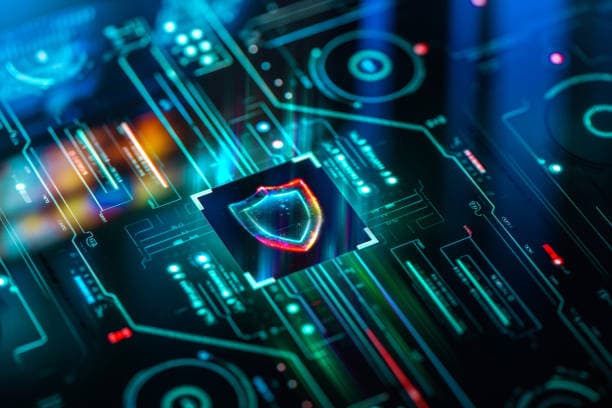
Basic Concepts and Role of DAO
DAO is a decentralized form of organization built on blockchain technology. Unlike traditional companies or organizations, DAOs achieve self-governance through smart contracts and blockchain technology, removing the intermediaries and management layers of traditional organizational structures.Members of DAOs usually participate in decision-making through voting, and the power of each member depends on the number of tokens he or she holds, ensuring fairness and transparency in governance.
One of the advantages of DAO is its ability to eliminate centralized management in traditional organizations and enable decentralization of power. This allows DAOs to shine in areas such as decentralized finance (DeFi), bringing greater efficiency and security. Compared to centralized financial institutions, DAOs are able to reduce human intervention and increase transparency, while making all decisions traceable and avoiding the information asymmetry problems of traditional management.
DAO in the cryptocurrency space
1. Cryptocurrency project governance
The initial application of DAO was in the governance of cryptocurrency projects. For example, projects such as Ether and Compound have successfully implemented DAO governance models. In these projects, DAO members can make voting decisions on protocol upgrades, the use of funds, and the future direction of the project.
DAO makes it possible for all coin holders to have the right to participate in decision-making through a token voting system. This governance model not only improves transparency, but also reduces friction between the project team and the community, and enhances users' sense of participation and belonging.
2. Decentralized exchange (DEX) governance
Decentralized exchanges (DEX) are another important area for DAO applications. In DEX, DAOs can manage key parameters such as trading pairs, fee structures, and liquidity pools through smart contracts. Community members vote through the DAO to decide whether to add new trading pairs, adjust transaction fees, etc., thus maintaining the fairness and openness of the exchange.
For example, decentralized exchanges such as Uniswap and SushiSwap have adopted a DAO governance model that allows community members to manage and upgrade the platform. In this way, decentralized exchanges are able to continue to innovate and maintain the benefits of decentralization and de-trust.
The Role of DAOs in Decentralized Finance (DeFi)
Decentralized Finance (DeFi) is one of the important applications of DAO technology.The core concept of DeFi is to replace traditional financial intermediaries through smart contracts and decentralized governance to achieve more efficient and secure financial services.DAOs play the following main roles in DeFi:
1. Decentralized lending and borrowing
In traditional financial systems, lending and borrowing operations are usually intermediated and managed by banks and financial institutions. In decentralized finance, however, DAO manages the lending platform through smart contracts, avoiding intermediary fees and information asymmetry. Users can borrow or pledge money through the DAO platform, and all operations are automatically executed by smart contracts, ensuring transparent and fair transactions.
For example, DeFi platforms such as Aave and MakerDAO make decisions on asset management, loan rate adjustments, and liquidation of assets through DAO governance. The governance structure of these platforms is completely decentralized, and users can participate in platform upgrades and adjustments through voting, reflecting the decentralized governance advantages of DAOs.
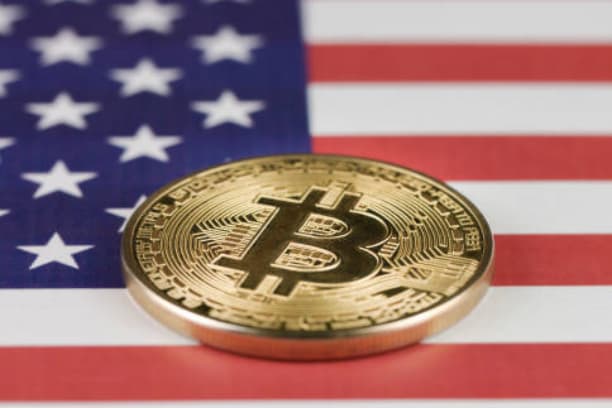
2. Decentralized insurance
DAOs also show great potential in the decentralized insurance space. While traditional insurance companies usually require a large amount of manpower and management structure, decentralized insurance decentralizes decision-making through DAOs, allowing users to customize insurance terms according to their actual needs, avoiding intermediary involvement and reducing management costs.
In a decentralized insurance platform, DAO members decide whether to pay out insurance benefits by voting, ensuring a transparent and fair decision-making process. This approach not only improves efficiency, but also makes the insurance market more open and fair.
DAO in NFT and Digital Arts
1. Decentralized governance of the NFT project
The use of DAOs in the NFT (non-homogenized token) space has also been a hot topic in recent years. Many NFT projects realize co-ownership and co-decision-making of artworks through DAO governance. Artists and investors can vote through DAO to decide which works enter the NFT market, how to distribute the proceeds, and so on.
This decentralized governance model not only promotes the fairness of the NFT market, but also makes art creation and transactions more democratic.DAO members participate in decision-making by holding NFT tokens, which enables art creators and investors to better collaborate and work together to promote the innovation and development of the NFT project.
2. Community-driven arts funds
DAO can also provide financial support for digital art projects and NFT creators. Under this model, DAO members can pool their money to set up an art fund to support promising artists or NFT projects. All use of funds and project support is voted by DAO to ensure transparency and proper use of funds.
This DAO-based art fund not only provides artists with more creative freedom, but also provides investors with a way to participate in the digital art market, while promoting the decentralization and development of the digital art industry.
The potential and future of DAO in other industries
1. Decentralized supply chain management
DAO technology can also be applied to supply chain management, automating all aspects of the supply chain through smart contracts.DAO enables all participants in the supply chain (e.g., producers, distributors, and retailers) to make decisions together through a transparent voting mechanism, ensuring product quality, supply chain transparency, and rational allocation of resources.
This decentralized supply chain management model not only improves efficiency, but also reduces intermediary costs, avoids the information asymmetry problem in the traditional supply chain, and further promotes the application of blockchain technology in the actual economy.
2. Community governance and social organizations
DAO's decentralized governance model can also be widely applied to the management of communities and social organizations. Through DAO, community members can participate in the decision-making of community affairs, realizing true democratic governance. This is not only applicable to virtual communities, but can also be expanded to real-world social organizations, such as residents' committees and environmental protection organizations.
Through the DAO governance model, community members are able to participate more actively in the decision-making process, ensuring the rational allocation of resources and promoting social equity and co-development.
reach a verdict
Blockchain DAOs, as an innovative form of decentralized organization, are expanding their application areas. From cryptocurrency project governance to decentralized finance and NFT projects, to supply chain management and social governance, DAO has unlimited potential. With the development of technology and the exploration of more industries, DAO will further transform the traditional industry structure and promote the popularization and practice of decentralized concepts. Both entrepreneurs, investors, and ordinary users can benefit from the changes brought by DAO and welcome a more open, transparent and efficient future.


